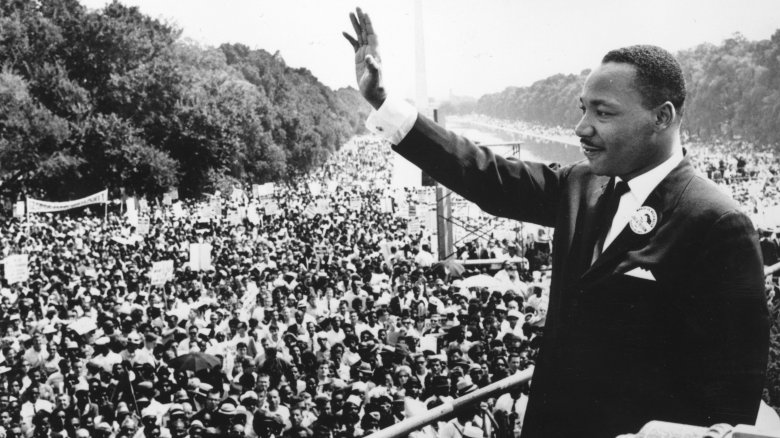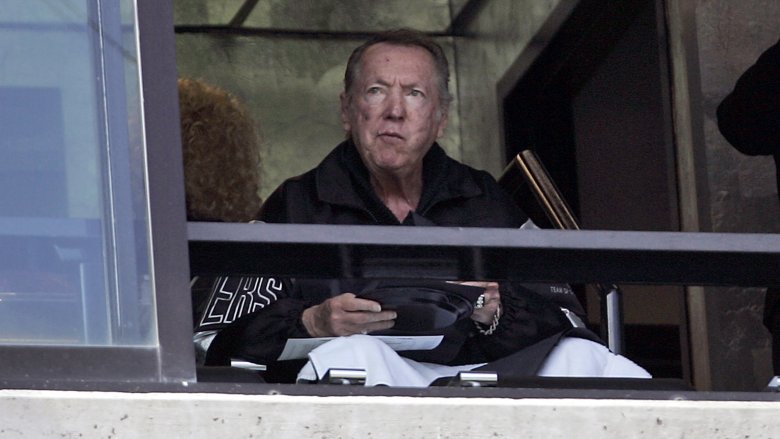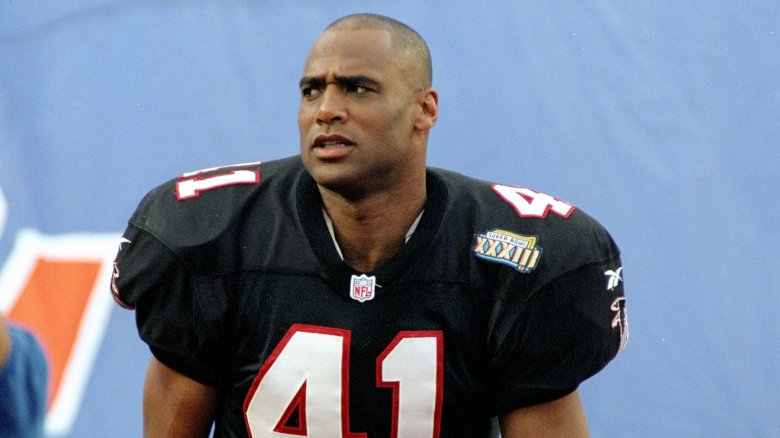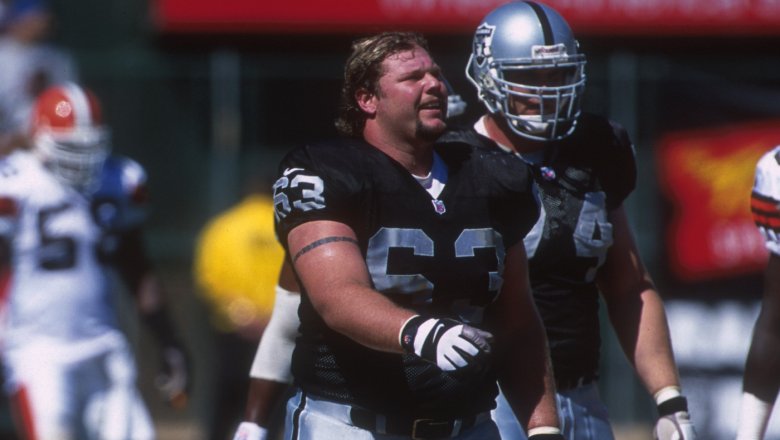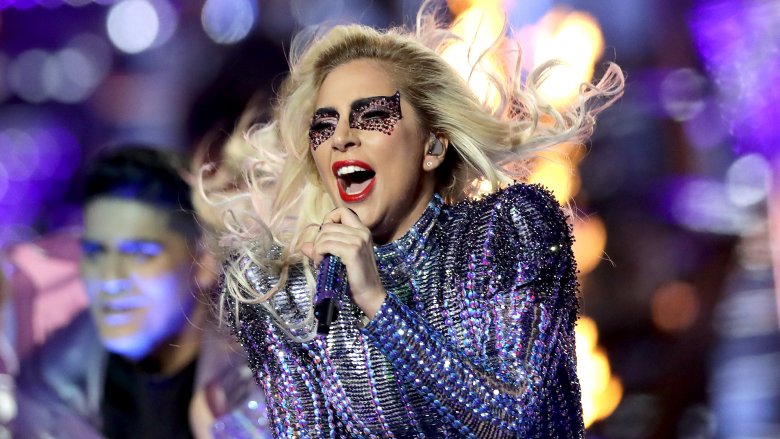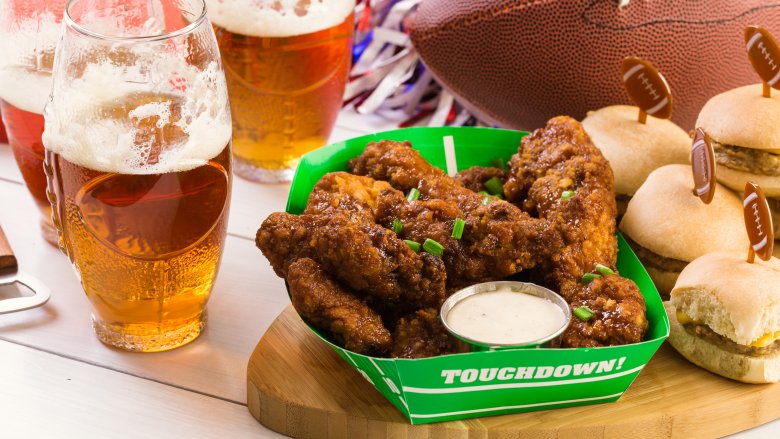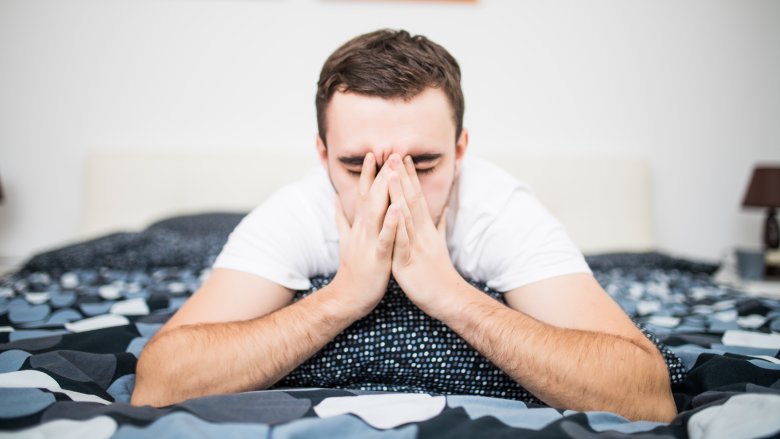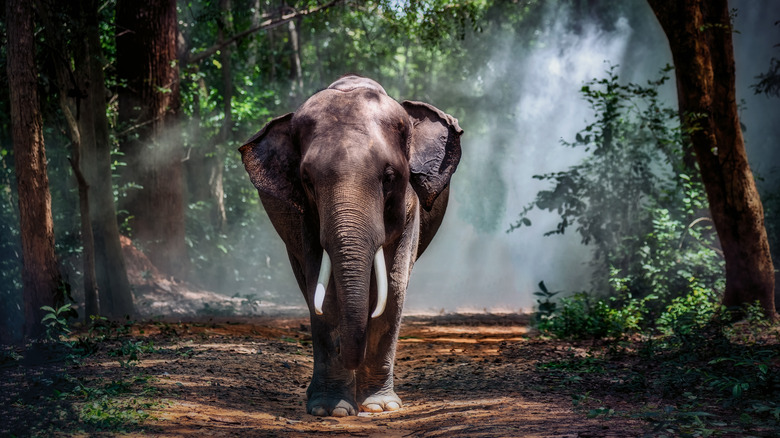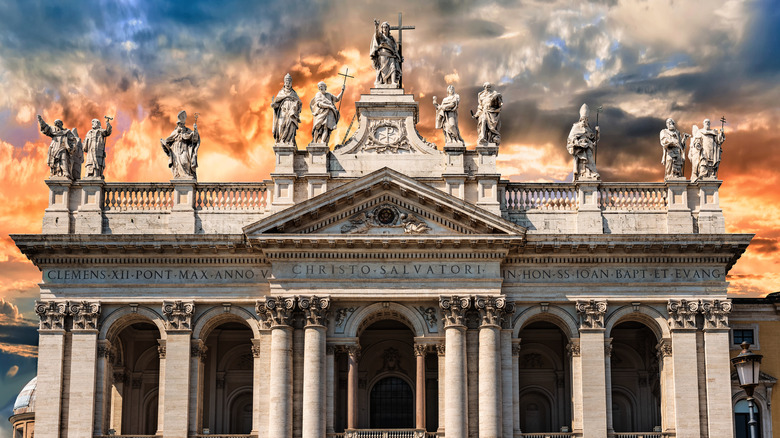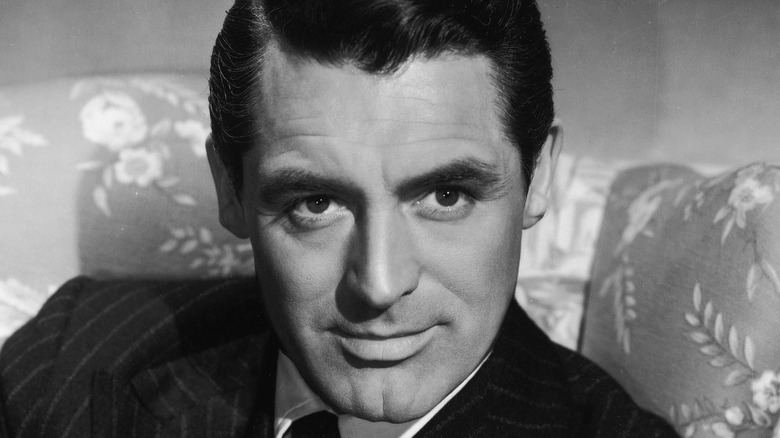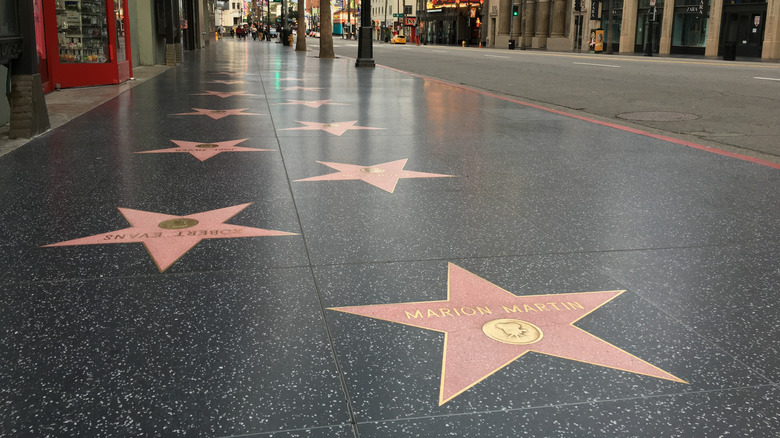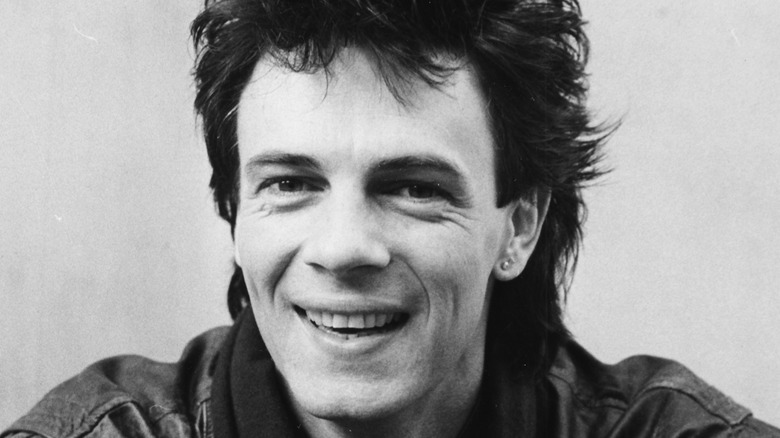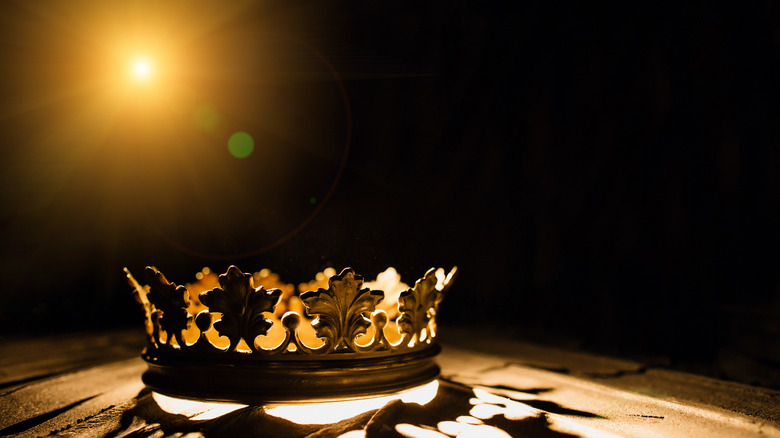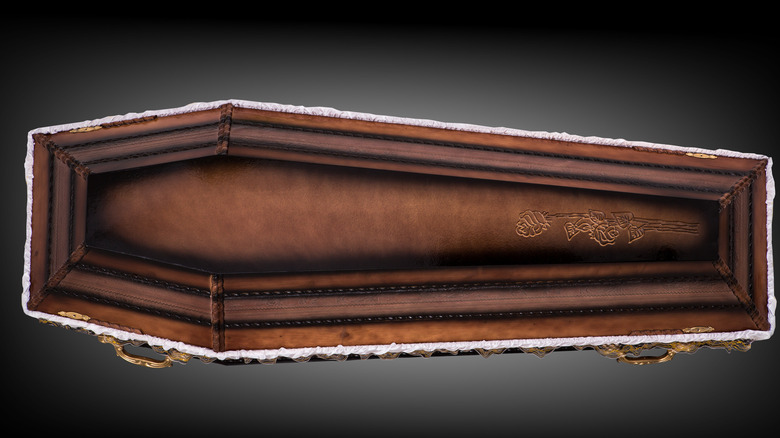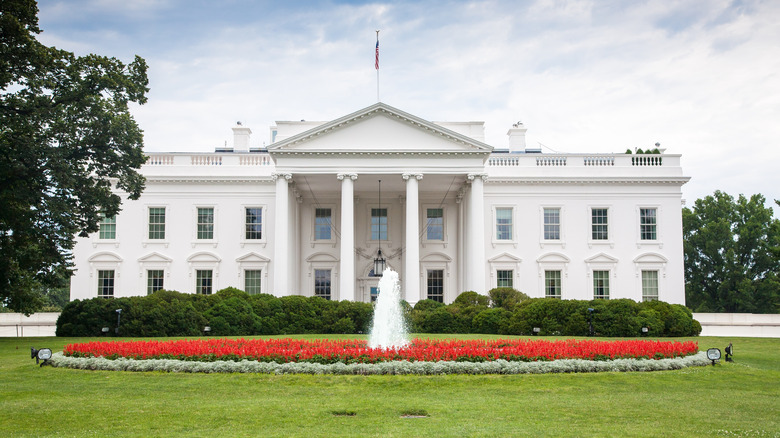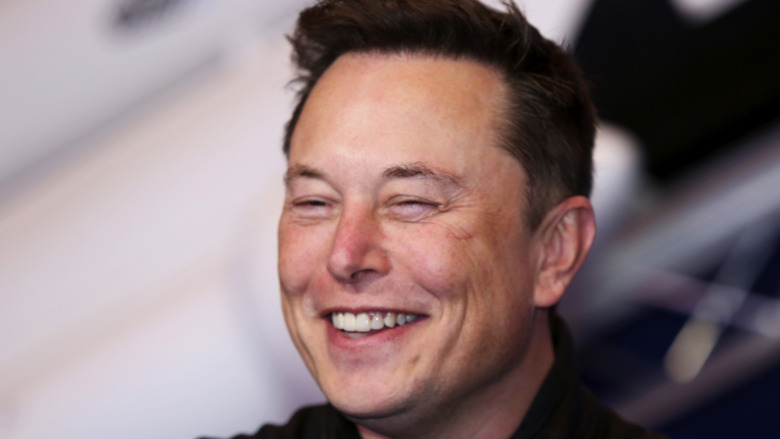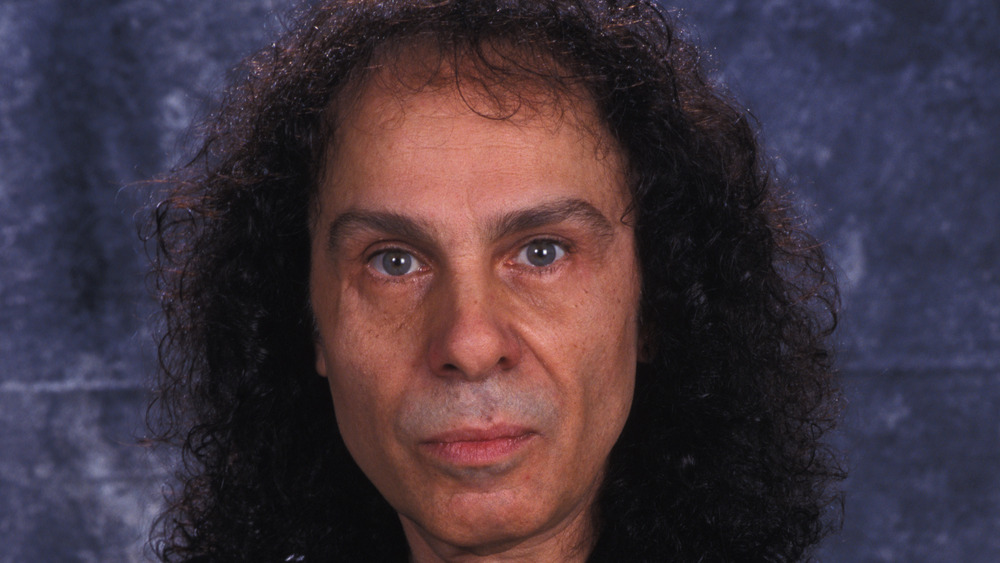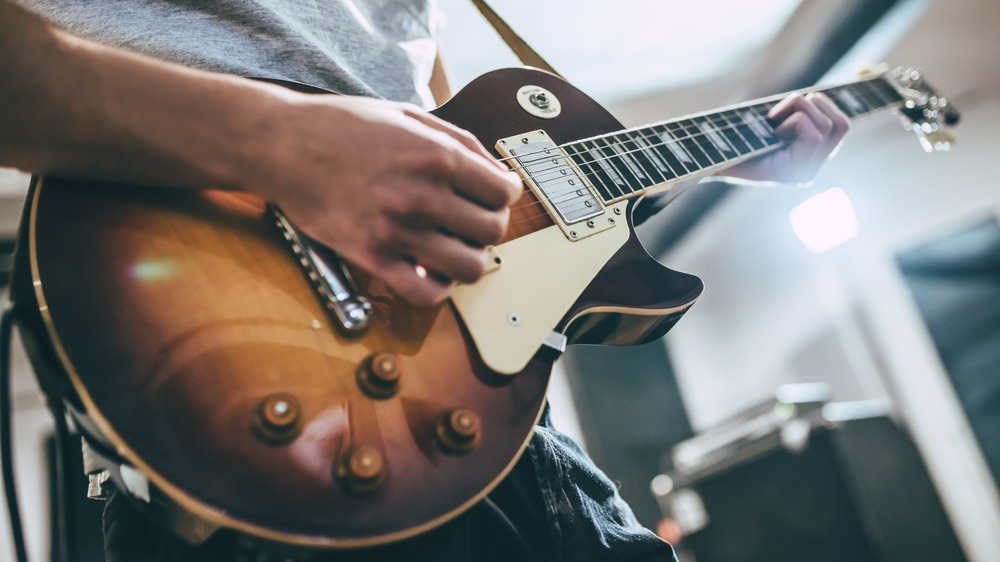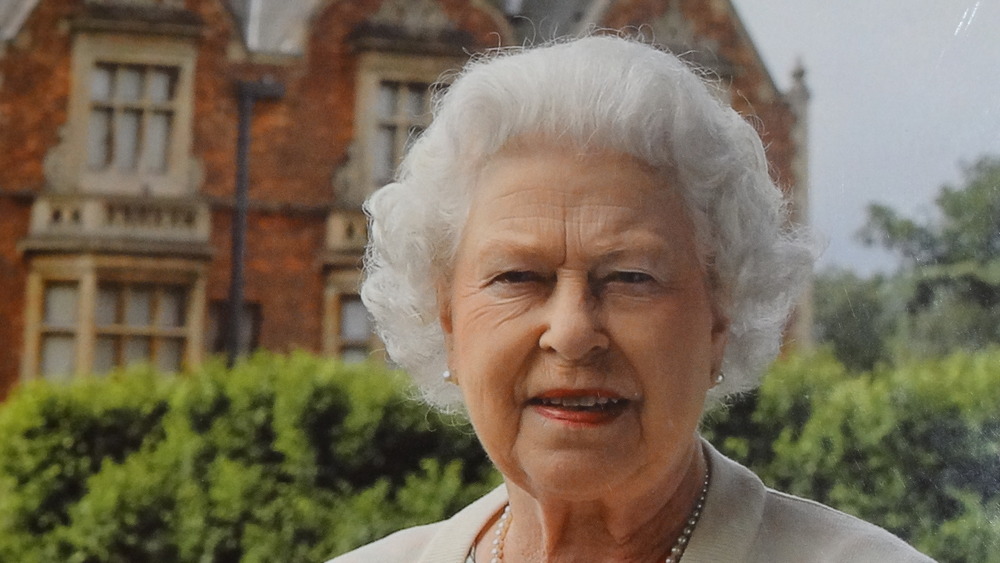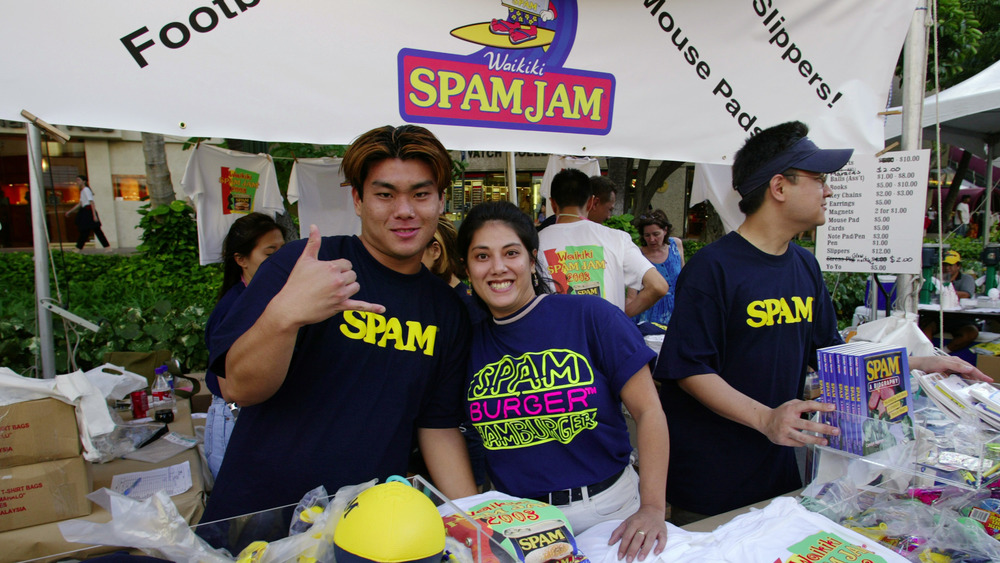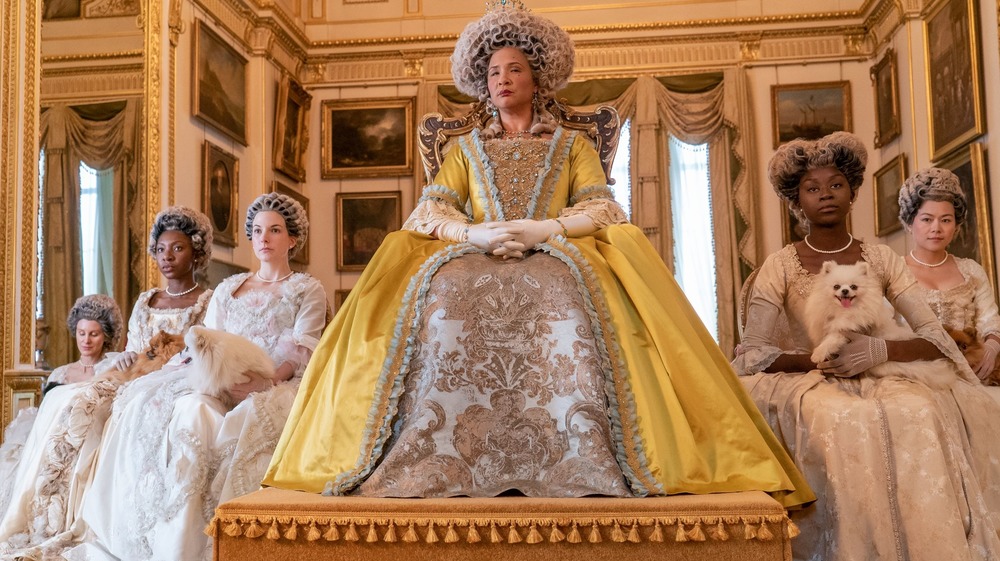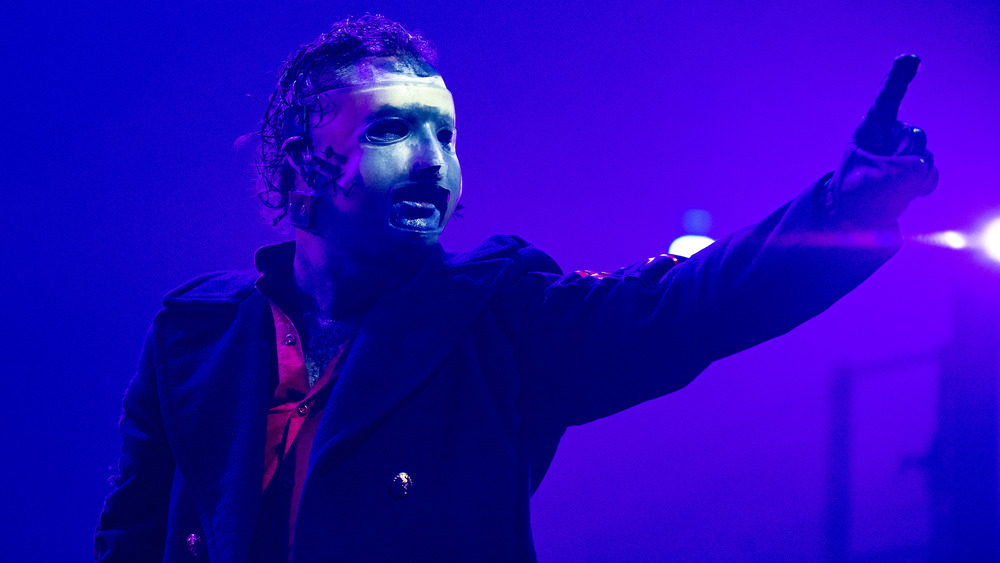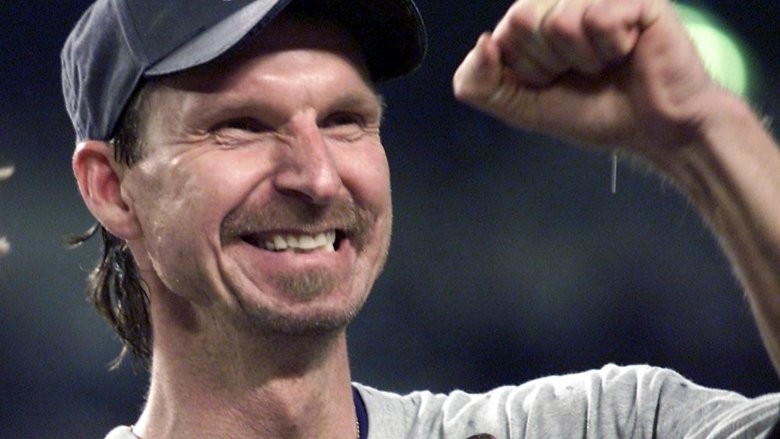
Messed Up Things You Never Knew Happened At Super Bowls
Few events bring people together like the Super Bowl. Even people who don’t know Tom Brady from Peter Brady tune in for at least some of the festivities. But look beyond the game, the commercials, and the halftime show, and you’ll find a lot of weird stories and happenings you simply don’t hear about during meaningless Week 3 games. Here are some of the most messed-up things that ever happened at the biggest of big games.
The tape of Super Bowl I got erased because of a soap opera
The only people taping over a Super Bowl should be some ’80s dad erasing his copy of Super Bowl XX to record a Three Stooges marathon. A professional company doing the same thing sounds unthinkable, but for the very first Super Bowl, that’s exactly what happened.
According to NFL.com, back in the ’60s, the Super Bowl wasn’t a big deal. More important was having enough blank tape to record shows for rebroadcast. As VCR recording was a new, expensive technology, networks simply couldn’t afford keeping anything unnecessary around. And that’s how the Super Bowl got erased in favor of a soap opera. Like sands through the hourglass, so are the gamedays of our lives.
The historic first Super Bowl would’ve been lost to the ages if not for the then-nascent NFL Films filming from the sidelines. In 2011, the NFL managed to cobble together gameplay footage, combine it with radio coverage, and give us something resembling Super Bowl I. That seems to be all we’re getting, even though NBC Sports reports one tape of the game does exist. The tape’s owner, Troy Haupt, wants $1 million for it — the NFL countered with a meager $30,000, and now prefers to pay him $0. Plus, claiming copyright law, they won’t let anyone else buy it either. Talk about a super tease.
Arizona lost a Super Bowl because it wouldn't recognize Martin Luther King Day
It’s a huge publicity boost for a city to host a Super Bowl, although the economic benefits are unclear. Nobody wants to lose the Big Game once they earn it, but that’s what happens when your state decides it would rather not celebrate one of the greatest civil rights leaders of all time.
Arizona learned that the hard way. As recapped by the Washington Post, they were supposed to host 1993’s Super Bowl XXVII, which the Dallas Cowboys won. They’d been awarded that game several years before. But then, in 1990, a ballot question appeared regarding whether or not Arizona should officially observe Martin Luther King Day. You’d think the answer would be a slam-dunk “yes,” but Arizona had a surprise up its sleeve. Its voters rejected the idea, leaving MLK Day an unofficial, unpaid holiday at the state level.
The NFL wasn’t happy, taking Arizona’s Super Bowl away just as fast as a parent takes a toy away from a misbehaving toddler. NFL Commissioner Paul Tagliabue minced no words: “I do not believe playing Super Bowl XXVII in Arizona is in the best interest of the National Football League. Arizona can continue its political debate without the Super Bowl as a factor.” Two years later, Arizona voters got the hint and made MLK Day an official holiday — the reward was 1996’s Super Bowl XXX … which the Dallas Cowboys won. If something’s meant to be, it’s meant to be.
The Oakland Raiders won two Super Bowls while their owner was battling the NFL in court
If you’re a professional athlete, chances are you despise anything that distracts you from winning professional sports games. But the Oakland Raiders endured perhaps the biggest distraction of all — owner Al Davis in a courtroom — and still won multiple Super Bowls.
As recapped by Bleacher Report, in 1979 Al Davis wished to move his team to Los Angeles. The other NFL owners unanimously rejected his dream, and the league itself interfered when Davis tried moving the team anyway. Davis quickly resorted to Plan B: an antitrust lawsuit against the NFL. Three years later, as reported by the Washington Post, a jury actually agreed with him, saying that the NFL was unfairly blocking a move they felt was designed to create competition. The Raiders then moved to L.A. and stayed until 1994.
Interestingly, while Davis was busy suing the league, the Raiders somehow got better, winning Super Bowl XV in 1981 and waiting until Davis’ legal battles ended before also ending their winning ways. Amazingly, this wasn’t the first time this happened. From 1972 to 1976, Davis was battling a lawsuit to gain control of the Raiders. In that time, the team advanced to the AFC Championship three times, and even won 1976’s Super Bowl XI. It’s clear what the Raiders need to do if they ever want another title: find a reason to take someone to court.
Player solicits prostitute night before the Super Bowl, gets arrested
Athletes behaving badly is one thing, but the story of Eugene Robinson of the Atlanta Falcons is something else entirely.
As told by the Washington Post, in February 1999 the Falcons were playing the Denver Broncos in Super Bowl XXXIII. For Robinson, the Super Bowl was quickly becoming a regular thing. He had appeared in the Super Bowl each of the previous two seasons as a Green Bay Packer, winning one. For whatever reason, Robinson chose to celebrate his third straight appearance by attempting to pick up a lady of the night the evening before the Big Game. This got him in Big Trouble, as the lady was an undercover cop who promptly arrested him. He was released in time for the Super Bowl, but he performed poorly and contributed to the Falcons losing to the Broncos, 34-19. (In post-game comments made to the New York Times, multiple Falcons said Robinson’s arrest was a distraction.)
If all this wasn’t messed-up enough, Robinson had actually received an award that very morning for being a really upstanding guy. Every year, a religious group called Athletes In Action hands out the Bart Starr award, honoring the player they feel best exhibits strong character and morality. Even Robinson knew he didn’t deserve that particular award that particular year, and so he returned it. He’s kept his record clean since then, but nobody will soon forget the incredibly silly thing he did just before one of the three biggest games of his life.
An Oakland Raider disappeared just before the Super Bowl
Here’s one of the most bizarre, and also, saddest, Super Bowl stories ever, courtesy of Sports Illustrated.
On January 24, 2003, two nights before the Oakland Raiders were set to play in Super Bowl XXXVIII, a player named Barret Robbins arrived at the team hotel, went to his hotel room … and wasn’t there the next morning. Nobody could find him, until he returned that night, barely coherent and completely confused. His coach deactivated him for the Super Bowl, and when his wife later asked him where he was supposed to be that night, he reportedly answered, “Church?”
Robbins wasn’t being a clown, nor did he storm out due to something his coach said. Sadly, Robbins suffers from bipolar disorder and had apparently been going through a manic episode for almost two weeks prior to his disappearance. On that day, his manic side had completely clouded his brain, to the point where he had wandered literally out of the country. According to Robbins himself, he wandered his way to Tijuana, where he was apparently celebrating his team’s big Super Bowl win, unaware the game had not happened yet. Also, when the game did happen, the Raiders got blown out of the water by the Tampa Bay Buccaneers. He might’ve been happier had he stayed in Tijuana.
Since then, Robbins has made it a point to sleep through the Super Bowl, saying the annual reminder of what his mental illness cost him is too much to deal with.
Halftime performers don't get paid
Ask any artist what they think about performing for free, and see how quickly they throw a shoe at your head. If an artist puts in time to entertain people, they normally expect pay as any other worker might. That is, except for whoever’s performing at the Super Bowl Halftime Show. That gig’s free.
Yes, despite the massive spectacle, the NFL doesn’t pay out a single penny to the performer. They’ll pay for the show’s production but otherwise, world-famous stars like Lady Gaga, Beyonce, Katy Perry, and Justin Timberlake find themselves playing for exposure. That said, with well over 100 million people watching, it’s quite good exposure. That’s why The Atlantic can call the Super Bowl halftime show “a one-of-a-kind, ultra-prestigious unpaid internship” and not really be wrong.
Around 2014, according to the Wall Street Journal, the NFL attempted to capitalize on all this exposure, by suggesting potential halftime performers actually pay them to play. This might be the only thing goofier than performing for free, and no artist has agreed to it since. Thus goes the annual agreement between artist and league: No money changes hands, everyone has fun, and all the clothes stay on.
Part of a movie about a terrorist attack was filmed at Super Bowl X
Of all the things you’re not likely to see in today’s image-conscious NFL, a movie about a terrorist attack occurring during a Super Bowl, and filmed at an actual Super Bowl, has to be at the top of your list. It wasn’t always this way, though, because at Super Bowl X in 1976, we got just that.
Black Sunday was a 1977 thriller about a crazed Goodyear Blimp pilot who conspires with terrorists to kill as many people as possible by blowing up a blimp during the Super Bowl. The movie flopped, only pulling in about $15 million, but remains memorable for the scene seen above, featuring the actual Goodyear Blimp at the actual Super Bowl X. Now obviously, the Blimp crashing into the stadium and everyone running away in terror from the crazy man seeking to blow them up wasn’t part of the real game. But according to the bookFootball’s Most Wanted II, quick shots of the crowd and blimp were filmed during the game and used for the film. So in addition to winning the Super Bowl, the Pittsburgh Steelers got to be extras in a film. Not a bad deal.
We eat a record-setting amount of food each Super Bowl
At a Super Bowl party, there’s only one thing more important than the game: the food. But it’s not just that we eat a lot of food during the Super Bowl — we actually eat a statistically ludicrous amount of food. It’s really quite fascinating, especially when you consider that, pomp and circumstance aside, the Super Bowl is really only a regular football game.
Nevertheless, we eat and eat. Going by data from the American Institute of Food Distribution (that’s a real group), we as a people eat more food on Super Bowl Sunday than any other day except for Thanksgiving. Other groups break down the food consumption even more: The National Chicken Council (also a real group) estimated that Americans would eat 1.33 billion chicken wings during Super Bowl LI. Meanwhile, Domino’s reports that it sells over 11 million slices of pizza during Super Bowl Sunday, 350 percent more than a regular old Sunday. And don’t forget the dip: The Haas Avocado Board sees around 105 million pounds of avocados turned into guacamole and eaten with chips during the Big Game.
Oh, and speaking of chips, Nielsen estimates Americans spend around $227 million on chips for the Super Bowl alone. No word, however, on who eats more: the happy fan whose team is winning and wants to celebrate with food, or the stress-eater who can’t believe their team’s blowing it.
The game apparently makes everybody 'sick'
Have you ever enjoyed the Super Bowl so much and overdid it on so many chicken wings, pizza, and beer that there was simply no way you could knuckle up and go to work on Monday?
According to data compiled by Herald Mail Media, in 2014 roughly 1.5 million Americans would call in sick the Monday after the Super Bowl, and almost 4.5 million people were expected to be late for work. Plus, in 2012, the Workforce Institute at Kronos, Inc. estimated that 8.7 percent of company payroll was lost due to people calling in sick the day after a major sporting event such as the Super Bowl. It’s basically an every-year thing, regardless of who plays and who wins.
As an aside, the Big Game affects companies even before kickoff. According to data from Challenger, Gray, and Christmas, U.S. companies lose over $1.25 billion during the week before the Super Bowl, due to workers yakking about it instead of working.
The moral: If you know you’re going to overdo it on Super Bowl Sunday, call out ahead of time. At least then your company can plan ahead.
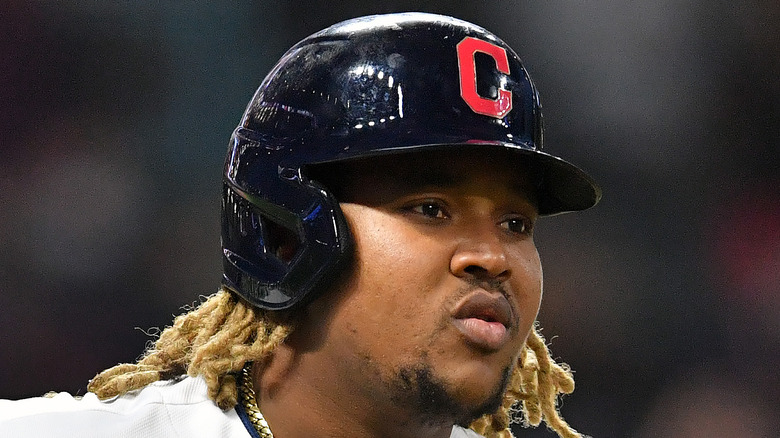
What The Cleveland Baseball Team's New Name Really Means
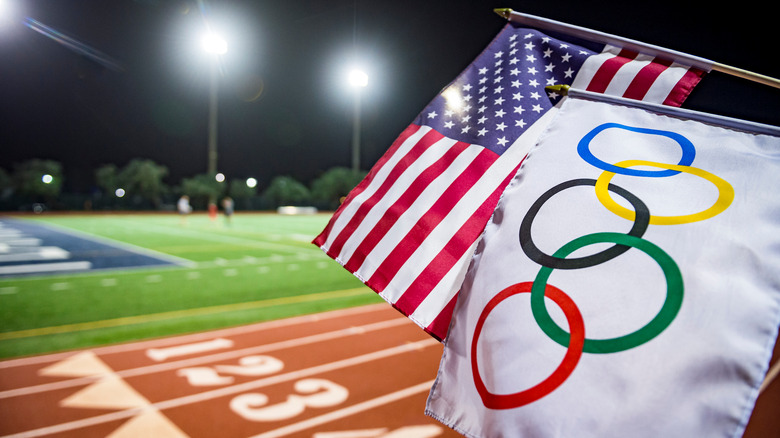
Team USA's Tattoos Explained
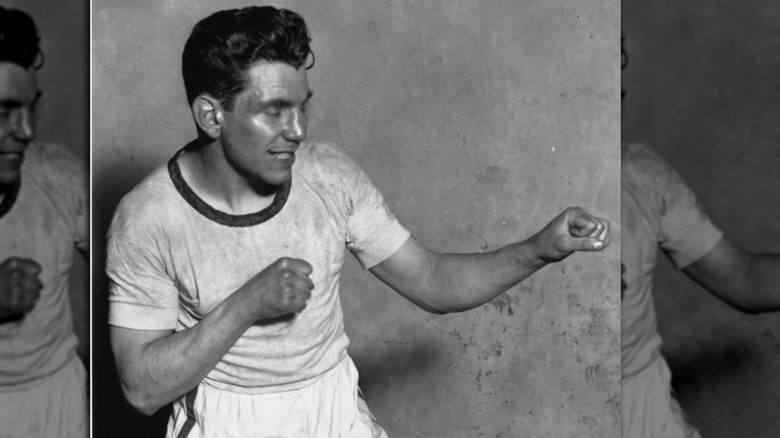
The Only Athlete To Win Gold Medals At The Summer And Winter Olympics
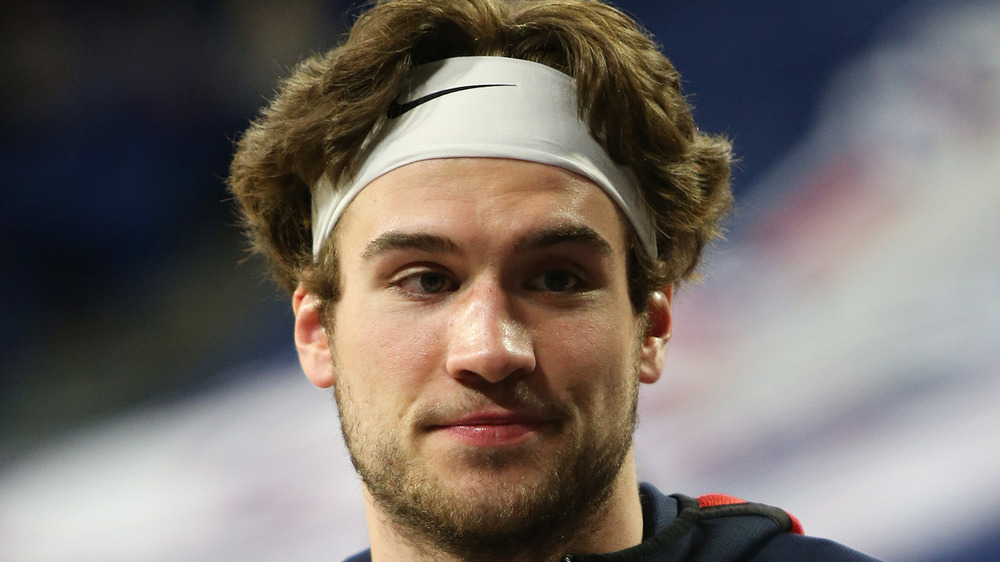
The Truth About Corey Kispert's Famous Grandfather
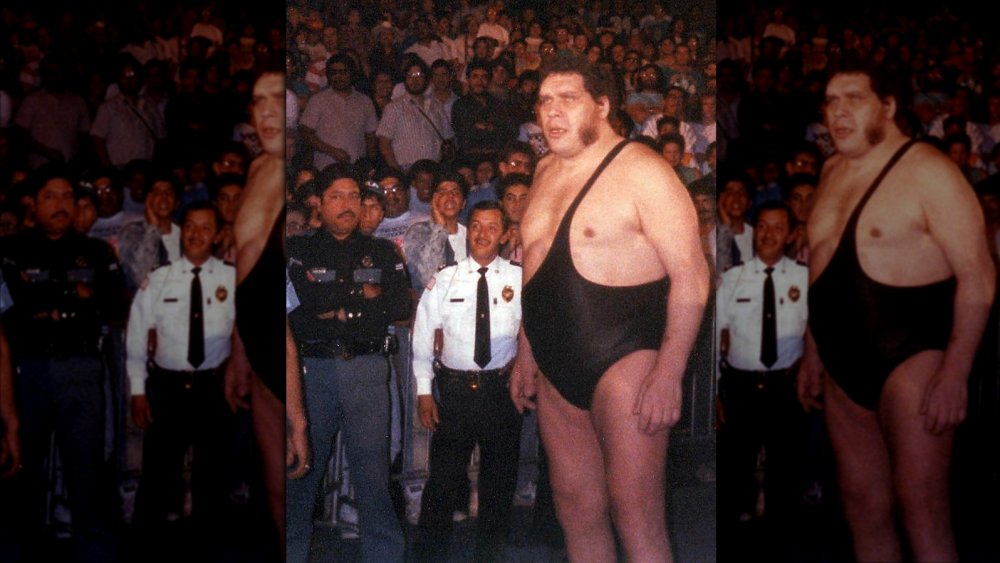
What Really Happened When Andre The Giant Wrestled Akira Maeda

What Life Is Like When You Own A Pointer Dog
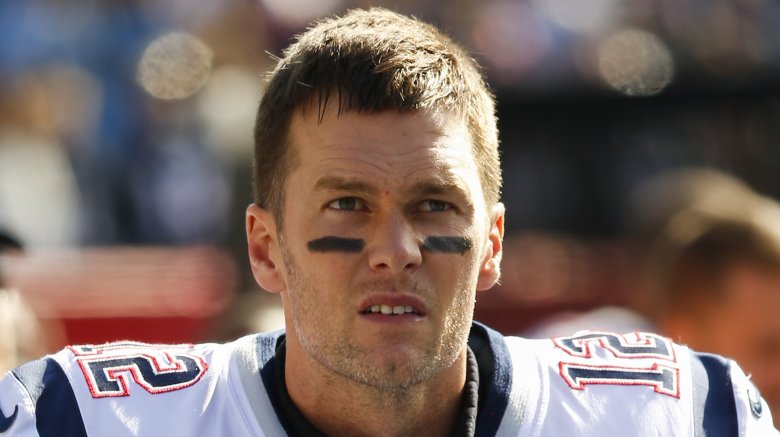
The Biggest Fines In Sports History

Wrestling Stars Who Are Surprisingly Poor

The Best Super Bowl Commercials Ever Created
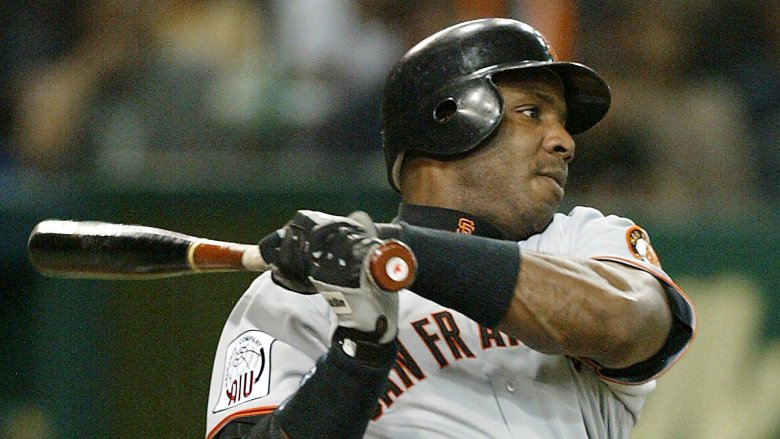
Sports Stars Who Treated Their Fans Like Trash
